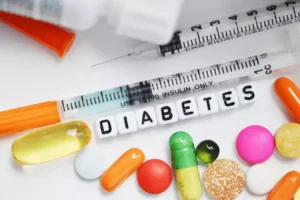Alcoholic Ketoacidosis: Causes, Symptoms, and Diagnosis

Alcoholic ketoacidosis (AKA) is a common reason for investigation and admission of alcohol dependent patients in UK emergency departments. Although well described in international emergency medicine literature, UK emergency physicians rarely make the diagnosis of AKA. There is increasing evidence that rather than being benign and self limiting, AKA may be a significant cause of mortality in patients with alcohol dependence. This literature review discusses the history, characterisation, pathophysiology, diagnosis, and management of AKA. The symptoms of AKA include nausea, vomiting, abdominal pain, confusion, and rapid breathing. Other symptoms may include low blood sugar, dehydration, and a fruity odor on the breath.
Resolution of ketoacidosis in children with new onset diabetes: Evaluation of various definitions

People close to the campaign say that lines of authority were blurred between Harris’ sister and campaign chairwoman, Maya Harris, and other advisers who’d worked on her state races but weren’t blood relatives. This time, instead of facing alcoholic ketoacidosis smell off against fellow Democrats, Harris would be able to elevate one to serve as her running mate. By the time she quit, Harris lacked money, a message and a cohesive campaign operation — all ingredients of a successful candidacy.
- As a result, dehydration occurs and the blood becomes even more acidic.
- This drop in blood sugar causes your body to decrease the amount of insulin it produces.
- Specifically look for nystagmus, confusion, ataxia, confabulation, and restriction of extraocular movements.
- You may get vitamin supplements to treat malnutrition caused by excessive alcohol use.
Possible Complications
Larger studies by Fulop and Hoberman5 and Wrenn et al6 (24 and 74 patients, respectively) clarified the underlying acid base disturbance. Although many patients had a significant ketosis with high plasma BOHB levels (5.2–14.2 mmol/l), severe acidaemia was uncommon. In the series from Fulop and Hoberman, seven patients were alkalaemic. AKA is caused by excessive and prolonged alcohol consumption, which causes the body to break down fatty acids instead of glucose for energy. This leads to a buildup of ketones, which can be toxic and cause alkalosis, or an imbalance of electrolytes in the body.

The keto diet can reduce alcohol cravings and may even help curb alcoholism
Treatment may involve fluids (salt and sugar solution) given through a vein. You may get vitamin supplements to treat malnutrition caused by excessive alcohol use. Neurologically, patients are often agitated but may occasionally present lethargic on examination.
- If your blood glucose level is elevated, your doctor may also perform a hemoglobin A1C (HgA1C) test.
- Untreated, diabetic ketoacidosis can lead to loss of consciousness and, eventually, death.
- Alcohol interferes with normal brain function by interfering with neurotransmitters like dopamine and serotonin.
Other electrolyte abnormalities concomitantly present with alcohol abuse and poor oral intake include hypomagnesemia and hypophosphatemia. Magnesium and phosphate levels should be measured and repleted if the serum levels are found low. Alcoholic Ketoacidosis (AKA) is a serious medical condition that occurs when the body breaks down fatty acids for energy instead of glucose due to prolonged alcohol abuse. This causes a buildup of ketones, which are acidic and can be toxic if not treated. This can lead to a dangerous and often deadly condition known as ketoacidosis. Alcoholic ketoacidosis (AKA) is a condition seen commonly in patients with alcohol use disorder or after a bout of heavy drinking.
- If the patient’s mental status is diminished, consider administration of naloxone and thiamine.
- Transcend Recovery Community can surely help anyone suffering from alcoholism and alcoholic ketoacidosis get better.
- He is well-versed in traditional and innovative therapies, including cognitive-behavioral therapy, motivational interviewing, and mindfulness-based interventions.
- With over a decade of addiction treatment experience, Mark deeply understands the complex needs of those struggling with addiction and utilizes a comprehensive and holistic approach to address them.
Alcohol withdrawal, in combination with nausea and vomiting, makes most patients agitated. However, if an AKA patient is lethargic or comatose, an alternative cause should be sought. All our evidence-based health guides are written or reviewed by medical doctors who are experts on the topic.
Gold Cap Mushrooms Effects, Signs, Withdrawals & Treatments

